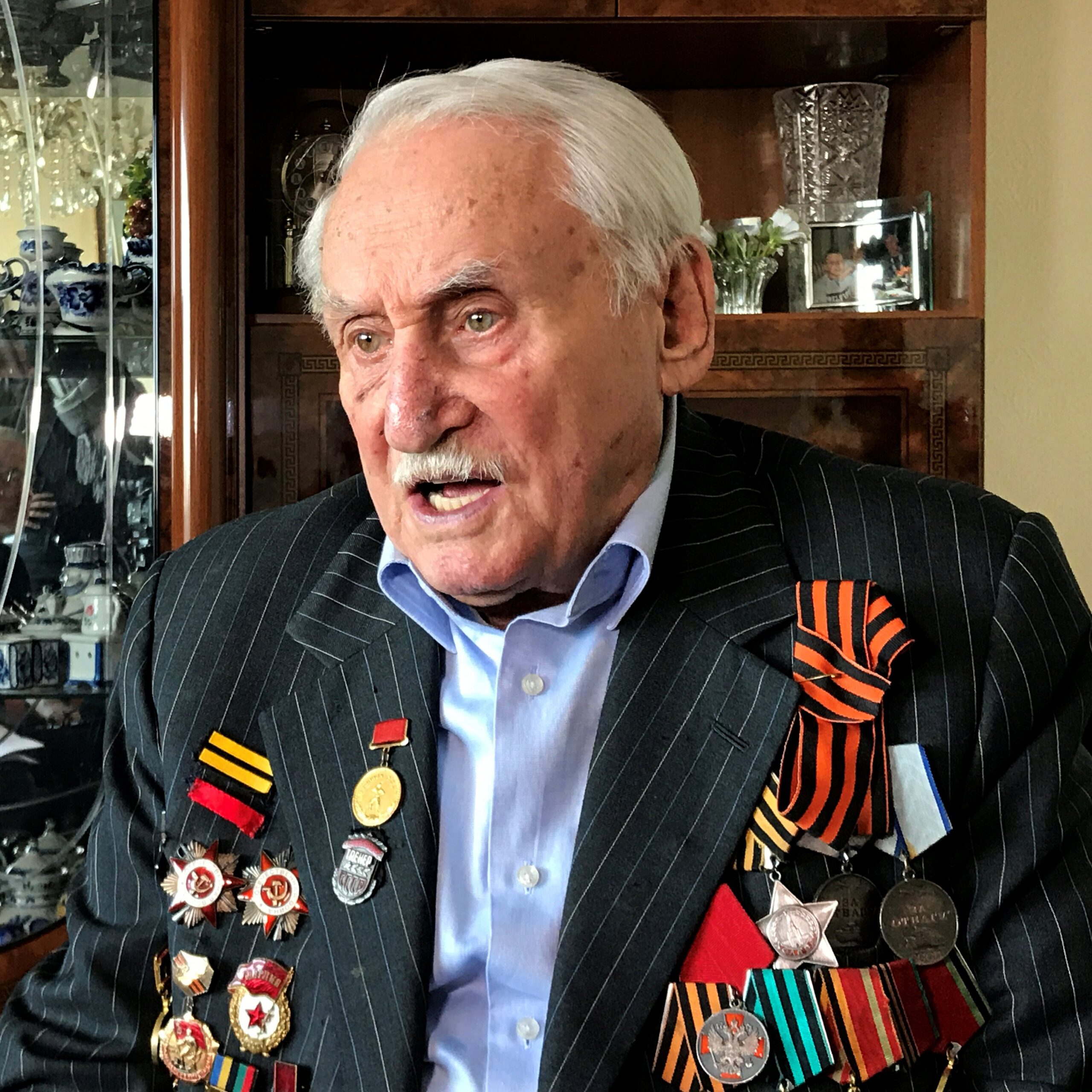He was born in Gdańsk, which at the time was a free city governed by the League of Nations, and today belongs to Poland. However, he had it written in his documents that his birthplace was Minsk, which at the time was in the Soviet Union and today is the capital of Belarus. This change was made by his mother, who did so for political reasons. David’s father was a doctor and a general in the Red Army. He was a hero of the Bolshevik Revolution, but fell out of favor in the 1930s and was sent to the Gulag in Siberia during the so-called Great Purge of 1938, and died there in 1949.
When war broke out between the recent allies, that is when Germany attacked the Soviet Union in 1941, David was 18 years old and joined the army as a volunteer. During the fighting he was severely wounded three times. In January 1945, the Red Army joined the January Operation to liberate the western territories of Poland, enter Germany and seize Berlin.
David served in the 322nd Rifle Division (Infantry Division) as a T-34 tank driver. A few days after the offensive began, David’s division liberated Cracow and then headed west. The goal of the Soviet troops in this area was to enter Silesia and occupy this heavily industrialized region. On the morning of Saturday, January 27, Red Army soldiers entered the suburbs around Oswiecim. At noon, they captured the city center. In the fighting to liberate the town and Auschwitz concentration camp, 231 Red Army soldiers were killed, and 66 were killed within the camp itself. During the liberation of the camp, David rammed the camp’s electrified fence with his T-34 tank to pave the way for the Soviet infantrymen.
Many years after the war, he recalled that he had been at the camp very shortly, but the site itself made a terrifying impression on him.
When we arrived at the site, we saw the fence and those unfortunates, we broke through the fence with our tanks. We gave the prisoners food and continued the assault. There were skeletons everywhere [in the camp] and people were coming out of the barracks shakily, sitting down and lying down among the dead.
In turn, one of the camp’s inmates recalls the liberation this way:
We heard the detonation of a grenade near the camp gate. We immediately looked out of the blocks and saw (…) several Soviet scouts. At the sight of us, the scouts lowered their weapons. There was a spontaneous greeting. Knowing Russian, I turned to the scout with the words: “Zdrastwujtie pobieditieli i oswoboditieli!” (Russian: Greetings to the conquerors and liberators). In response we heard: “Uże ye swobodnyye” (Russian: Now it is free).
David, like other Red Army soldiers, did not know where they ended up and who they liberated. They did not know the history of Auschwitz. But the deed they did became a symbol for survivors and January 27 became International Holocaust Remembrance Day,
David survived the war, after which, according to family tradition, he studied medicine. However, his passion was fencing and he devoted himself completely to this sport – first as a player, and then until 1988 as a coach of the Soviet Union’s national fencing team.
